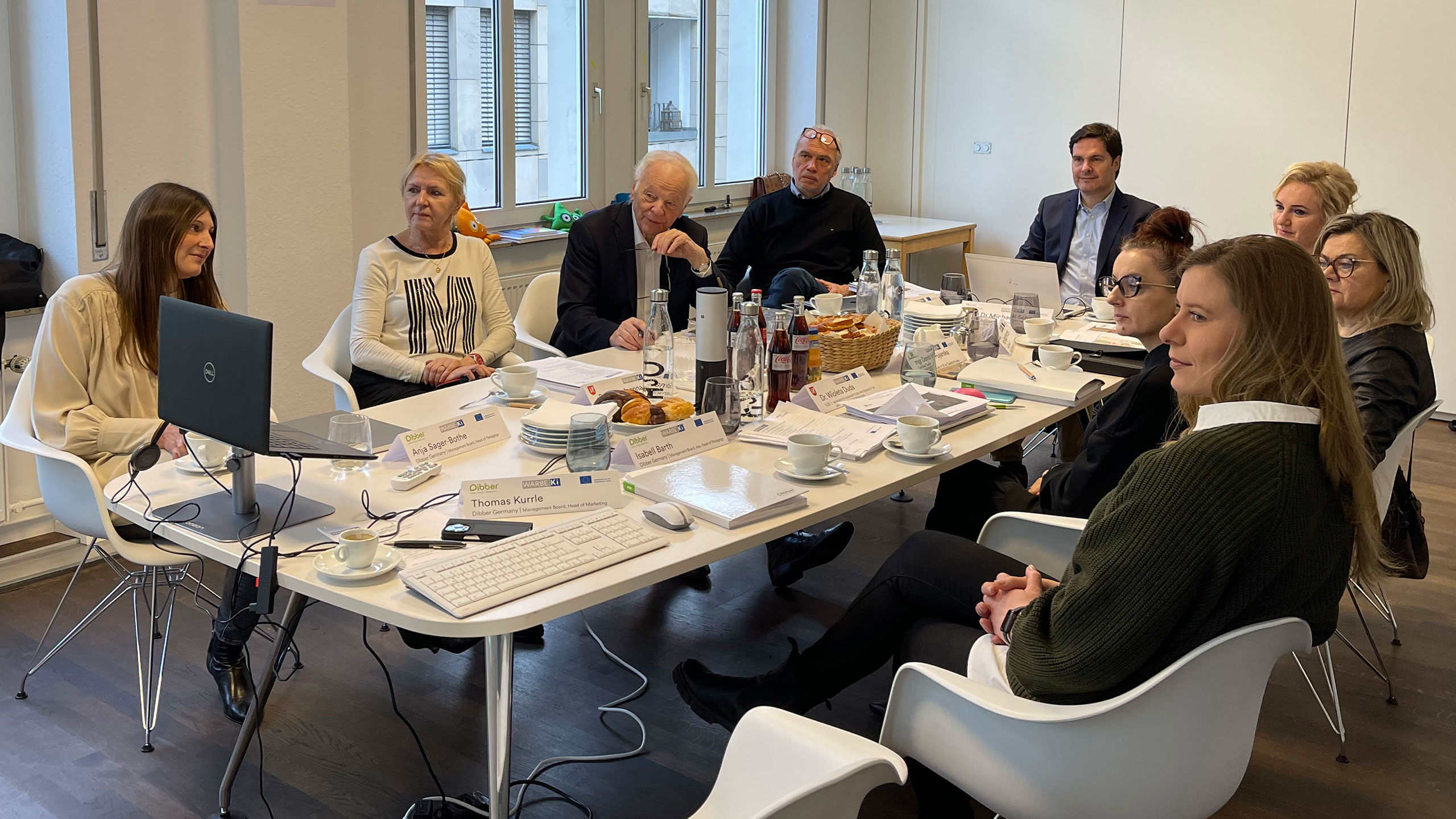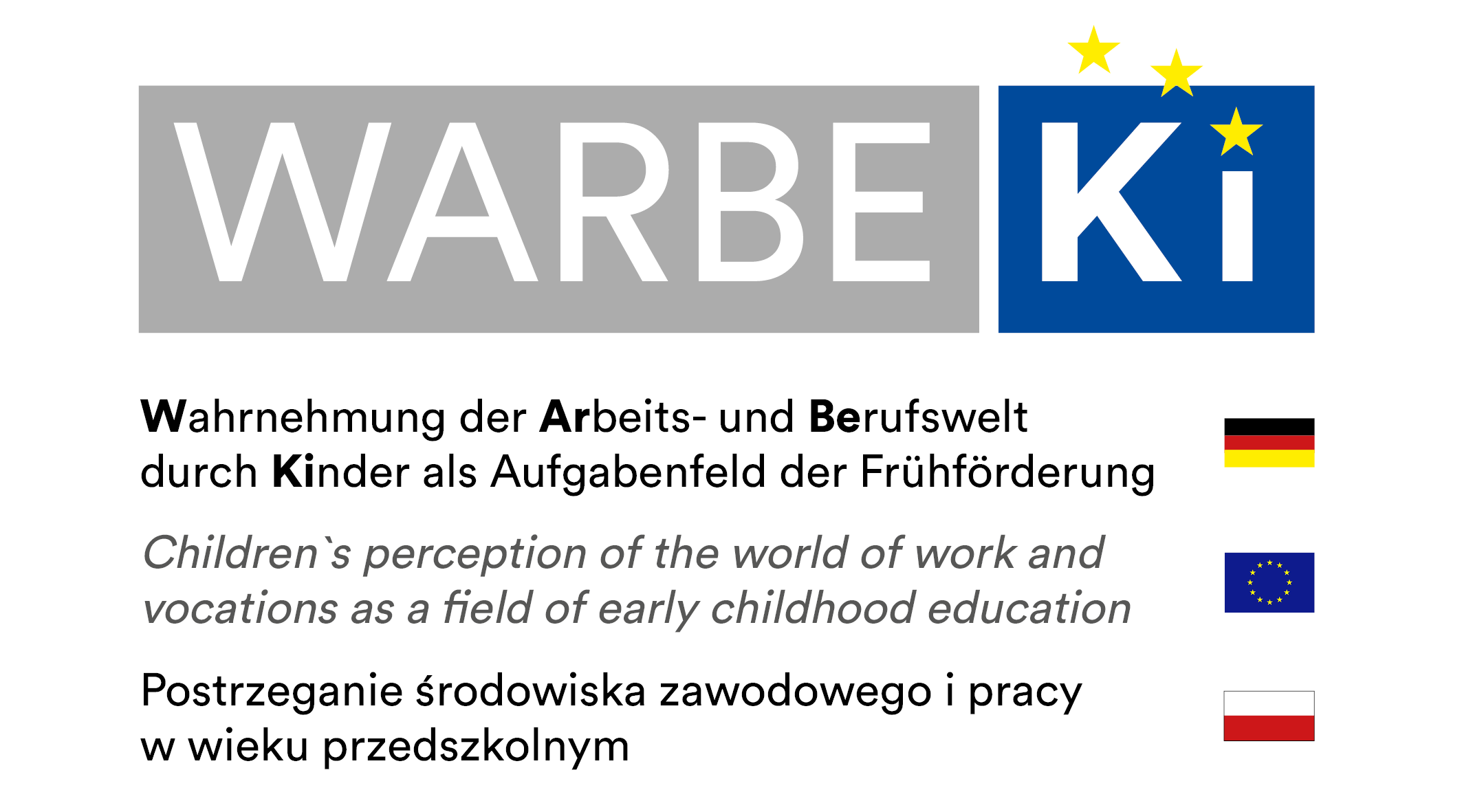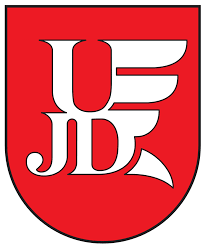




WARBEKi – ein ERAMUS+ Pilotprojekt
Children’s perception of the world of work and vocations as a field of early childhood education
Projektpartner
Initiator
project lead
Internationale Partner
international partners

Uniwersytet humanistyczno-Przyrodniczy im. Jana Długosza w Częstochowie
ujd.edu.pl

Dibber Deutschland Kindertagesstätten
dibber.de

Miejskie Przedszkole nr 37 w Częstochowa
montessorki.pl
Projektbeschreibung
project description
Im Fokus bei WARBEKi steht die Entwicklung, Erprobung und Umsetzung eines spezifischen Qualifizierungsprogramms (Seminar) für pädagogische Fach- und Führungskräfte in Kindertagesstätten (Kitas) zum Thema „Wahrnehmung der Arbeits- und Berufswelt in der frühkindlichen Entwicklung“.
Dieser Bildungsbereich muss u.E. Gegenstand der vorschulischen Arbeit sein. Dabei geht es um die systematische frühkindliche Begegnung mit Erlebnisräumen, die für das soziale Lernen positiver bildungs- und berufsrelevanter Einstellungen förderlich sind. Das pädagogische Personal soll befähigt werden, Kinder bereits im Vorschulalter für die „Arbeits- und Berufswelt“ zu sensibilisieren; allerdings ohne sie auf bestimmte Berufe einzustimmen, Diskriminierung frühzeitig zu verhindern und das lebenslange Lernen zu fördern. Unabdingbare Voraussetzung ist die curriculare Integration des Themenfelds in die Qualifizierung des pädagogischen Kita-Personals, wobei es um die Verbindung mit bestehenden curricularen Ansätzen geht. Die Wahrnehmung der Arbeits- und Berufswelt und die Entwicklung kindgerechter Career Management Skills (CMS) erfordern hier einen ganzheitlichen, interdisziplinären Ansatz. Ein zentrales Anliegen bezieht sich auf den sozial-integrativen Aspekt (Inklusion), zu dem auch die sprachanalytische Begegnung mit pädagogisch gestalteten Umfeldern – unter Einbeziehung der Eltern – zählt. Die Kinder sollen durch eine frühe, positive Auseinandersetzung mit der Arbeits- und Berufswelt die Bedeutung von Bildung und Erkundung für sich selbst erkennen.
Dem Pilotprojekt kommt auch beim Ausgleich sozialer und geschlechtsspezifischer Benachteiligungen eine große Bedeutung zu. Dies verdeutlicht den Zusammenhang der Instrumentalität von Bildung für den gesellschaftlichen Erfolg. Es handelt sich hier um ein wichtiges Feld der frühkindlichen Bildungsarbeit, die ein wesentlicher Bestandteil der Berufsberatung und -orientierung ist. Ein weiteres Projektziel ist die Verknüpfung von fachwissenschaftlichen Ansätzen mit der praktischen Vorschularbeit mittels didaktischer Modelle. Im Sinne des forschenden Lernens sind die Erstellung spezifischer Materialien sowie die Ergänzung bestehender Lernmittel, didaktischer Tools und pädagogischer Kita-Konzepte geplant. Das Projekt soll zudem die transnationale Zusammenarbeit in diesem Themenfeld fördern sowie die Wissenschaft und Praxis gleichberechtigt beteiligen. Auf diese Weise sollen die Umsetzung und Dissemination der Projektergebnisse auf nationaler und internationaler Ebene sichergestellt werden. Bitte skizzieren Sie die Zielgruppen Ihres Projekts Als (direkte) Zielgruppe sind vor allem die pädagogischen Fach- und Führungskräfte von Kitas (im Studium, in der Ausbildung und beruflichen Weiterbildung) zu identifizieren, die sich mit dem Thema „Wahrnehmung der Arbeits- und Berufswelt in der frühkindlichen Entwicklung“ in der Kita-Praxis (künftig) befassen. Es handelt sich um einen relativ neuen Ansatz in der Vorschulpädagogik.
Das Pilotprojekt WARBEKi konzentriert sich auf ein spezifisches Qualifizierungsprogramm (Seminar) für diese Zielgruppe. Dabei sollen wichtige Kompetenzen gefördert werden, um die Erlebnis-,
Handlungs- und Erkenntnismöglichkeiten der Kinder – ausgehend von ihren Bedürfnissen in ihrem Lebensumfeld – zu erschließen. Dabei orientiert sich der Aufbau und Inhalt des Qualifizierungsprogramms am Prinzip des lebenslangen Lernens und soll in bestehende Curricula (Studium, Ausbildung) integriert oder als separates Programm (berufliche Weiterbildung) angeboten werden. Als weitere (indirekte) Zielgruppe sind die Kinder im Vorschulalter (drei bis sieben Jahre) zu sehen. Bei den Kindern soll frühzeitig die Motivation und Fähigkeit zur kontinuierlichen und selbstgesteuerten Exploration geweckt werden, um so Ängste über persönliches Versagen, soziale Ausgrenzung, kulturelle Diskriminierung (auch in der Familie), einseitige Rollenzuweisung, Elternarbeitslosigkeit pädagogisch entgegen zu treten.
In der Wissenschaft wird der beruflichen Exploration bislang wenig Beachtung geschenkt. So wird angenommen, dass arbeitswelt- und berufsbezogene Themen erst in der Phase der Vorpubertät eine Rolle spielen (z.B. die entwicklungspsychologischen Ansätze von Ginzberg u.a. und Super). Das Pilotprojekt geht hingegen – basierend auf einer Reihe von empirischen Untersuchungen (erweiterte Kasuistiken) – davon aus, dass sich Vorschulkinder bereits sehr dezidiert mit der Arbeits- und Berufswelt auseinandersetzen können.
Weitere Zielgruppen des Projektes sind die für die Qualifizierung verantwortlichen Lehrkräfte (Hochschulen, Ausbildungs- und Weiterbildungseinrichtungen für pädagogische Kräfte), die Eltern, Lehrkräfte im Grundschulbereich sowie Beratungsfachkräfte in Bildung und Beruf.
WARBEKi focuses on the development, testing and implementation of a specific qualification programme (seminar) for educational specialists and managers in day care centres for children (Kitas) on the topic of „Perception of the working and professional world in early childhood development“.
In our opinion, this area of education must be the subject of pre-school work. It is about systematic early childhood encounters with experiential spaces that are conducive to the social learning of positive educational and vocational attitudes. Pedagogical staff should be enabled to sensitise children to the „working and professional world“ already at preschool age; however, without predisposing them to specific professions, preventing discrimination at an early stage and promoting lifelong learning.
An indispensable prerequisite is the curricular integration of the subject area into the qualification of the pedagogical day-care staff, whereby it is a matter of connecting with existing curricular approaches. The perception of the working and professional world and the development of child-oriented Career Management Skills (CMS) require a holistic, interdisciplinary approach here. A central concern relates to the social-integrative aspect (inclusion), which also includes the language-analytical encounter with pedagogically designed environments – with the involvement of parents. The children are to realise the importance of education and exploration for themselves through an early, positive engagement with the world of work and occupation.
The pilot project also plays an important role in compensating for social and gender-specific disadvantages. This illustrates the connection of the instrumentality of education for social success. This is an important field of early childhood education work, which is an essential component of career guidance and counselling. Another project goal is to link subject-specific scientific approaches
with practical preschool work by means of didactic models. In the sense of research-based learning, the creation of specific materials as well as the supplementation of existing learning aids, didactic tools and pedagogical day-care centre concepts are planned. The project also aims to promote transnational cooperation in this thematic field and to involve science and practice on an equal footing. In this way, the implementation and dissemination of the project results at national and international level will be ensured. Please outline the target groups of your project The (direct) target group to be identified is primarily the educational specialists and managers of day-care centres (in studies, training and further vocational training) who (in the future) will deal with the topic of „Perception of the working and professional world in early childhood development“ in day-care centre practice. This is a relatively new approach in pre-school education.
The pilot project WARBEKi focuses on a specific qualification programme (seminar) for this target group. The aim is to promote important competences in order to open up the children’s possibilities for experience, action and cognition – based on their needs in their living environment. The structure and content of the qualification programme is based on the principle of lifelong learning and is to be integrated into existing curricula (studies, training) or offered as a separate programme (professional development). Another (indirect) target group is children of pre-school age (three to seven years). The motivation and ability for continuous and self-directed exploration should be awakened in the children at an early stage in order to pedagogically counter fears of personal failure, social exclusion, cultural discrimination (also in the family), one-sided role assignment, parental unemployment.
In science, little attention has been paid to occupational exploration so far. For example, it is assumed that topics related to the world of work and occupation only play a role in the phase of pre-puberty (e.g. the developmental psychological approaches of Ginzberg et al. and Super). The pilot project, on the other hand, assumes – based on a series of empirical studies (extended casuistics) – that pre-school children are already able to deal very decisively with the world of work and careers.
Further target groups of the project are the teachers responsible for the qualification (universities, training and further education institutions for pedagogical staff), the parents, teachers in the primary school sector as well as counsellors in education and work.
Galerie
gallery
Impressions of the first project workshop on February 2nd/3rd 2023, at Dibber in Stuttgart